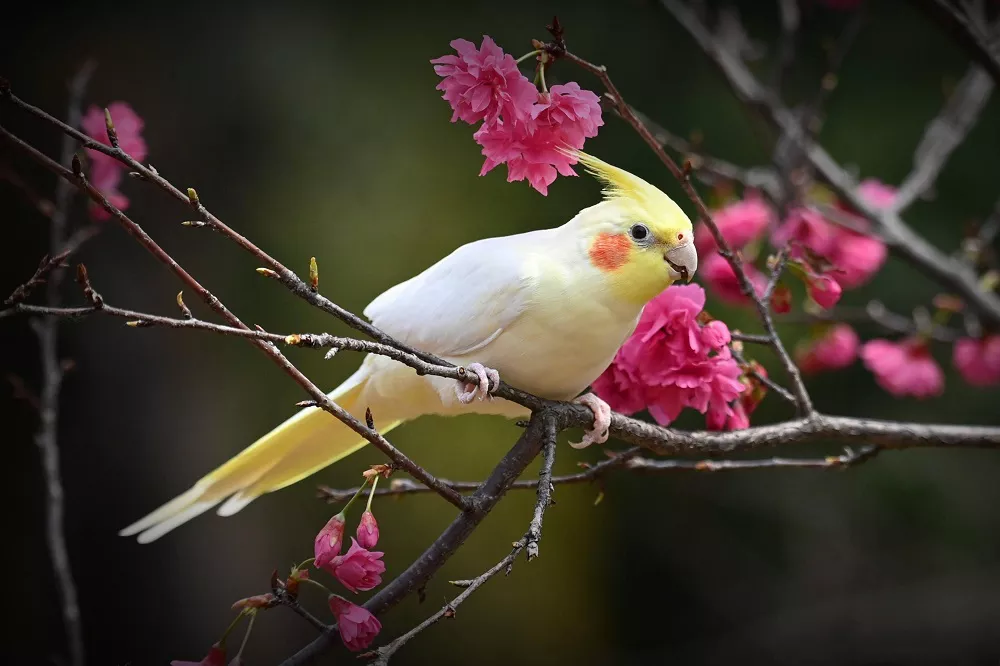Feathers play a crucial role in a cockatiel’s life, serving various functions such as insulation, flight, and communication. Therefore, it can be concerning for bird owners when they notice their beloved cockatiel losing feathers. Feather loss, or feather picking, is a common problem that can have multiple underlying causes. In this article, we will explore the reasons behind feather loss in cockatiels, the associated symptoms, and possible treatments to help owners better understand and address this issue.
Natural Molting:
One of the most common reasons for feather loss in cockatiels is natural molting. Molting is a normal process where old feathers shed and are replaced by new ones. During molting, a cockatiel may appear to have patches of bare skin, which can be mistaken for excessive feather loss. However, it is important to note that natural molting is a temporary and self-resolving process that should not be a cause for concern.
Poor Diet and Nutrition:
Feathers are primarily composed of protein, and a balanced diet is essential for their healthy growth. Inadequate nutrition, such as a lack of essential amino acids, vitamins, or minerals, can lead to feather abnormalities and subsequent loss. It is crucial to provide your cockatiel with a well-rounded diet consisting of high-quality pellets, fresh fruits and vegetables, and occasional protein-rich treats like cooked eggs or lean meats.
Stress and Psychological Factors:
Cockatiels are highly sensitive creatures, and stress can have a significant impact on their overall health, including their plumage. Environmental stressors, such as loud noises, changes in routine, or the introduction of a new pet, can trigger feather picking behaviors. Additionally, boredom, lack of mental stimulation, and inadequate social interaction can contribute to feather loss. Providing a stimulating and enriching environment, along with regular social interaction, can help alleviate stress-related feather loss.
Allergies and Skin Conditions:
Cockatiels can develop allergies or skin conditions that result in feather loss. Common allergens include dust, pollen, or certain cleaning products used around the bird’s environment. Skin conditions like mites, fungal or bacterial infections, or parasites can also cause feather loss. If you suspect allergies or skin issues, consult an avian veterinarian who can perform appropriate diagnostic tests and recommend suitable treatments.
Hormonal Changes:
Hormonal imbalances can cause feather loss in cockatiels, particularly during breeding seasons. Male cockatiels, in particular, may exhibit excessive preening, feather plucking, or bald spots as a result of hormonal changes. Providing a consistent light cycle, minimizing exposure to hormonal triggers like nesting materials, and discouraging excessive preening can help manage hormonal-related feather loss.
Treatment and Prevention:
When addressing feather loss in cockatiels, it is crucial to identify and address the underlying cause. Consultation with an avian veterinarian is highly recommended to determine the specific cause of feather loss and develop an appropriate treatment plan. This may include dietary adjustments, environmental modifications, medication for infections, or behavioral management techniques.
Preventing feather loss involves providing a balanced diet, a clean and stress-free environment, regular vet check-ups, and plenty of mental stimulation and social interaction. Additionally, keeping the bird’s environment clean, free of potential allergens, and maintaining good hygiene practices can help minimize the risk of feather loss.
Conclusion:
Feather loss in cockatiels can be caused by a range of factors, including natural molting, poor nutrition, stress, allergies, skin conditions, and hormonal changes. It is essential for bird owners to closely observe their cockatiels’ behavior, consult with an avian veterinarian, and implement appropriate measures to address the underlying cause. With proper care, a nutritious diet, and a stimulating environment, most cases of feather loss in cockatiels can be effectively managed, allowing these beautiful birds to maintain their vibrant plumage and optimal health.
Related topics:
- How to Identify Male or Female Cockatiel?
- Can Parakeet and Cockatiel Share Cage?
- How Long Do Cockatiels Live?


 Facebook
Facebook  Instagram
Instagram  Youtube
Youtube 